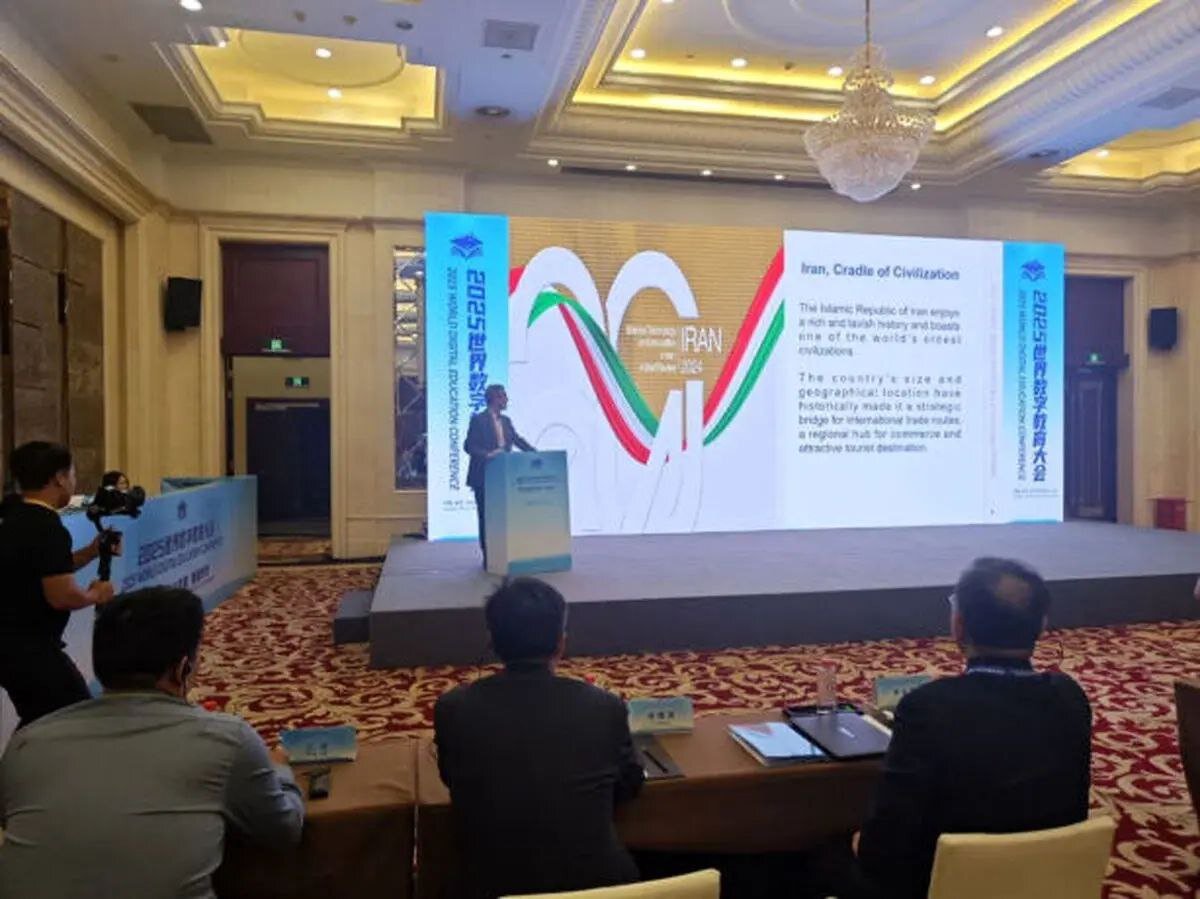Iran presents two proposals at World Digital Education Conference

TEHRAN – Addressing the 2025 World Digital Education Conference (WDEC), Iran’s Deputy Minister of Science, Research and Technology, Abolfazl Vahedi, proposed the establishment of a digital education center, as well as the development of a digital educational qualification system.
Hosted by Wuhan, China, the conference was held from May 14 to 16. The official also introduced the country’s higher education system and presented a report on the number of universities, students, and educational infrastructure. Referring to Iranian universities' achievements and expertise in the digitalization of education and utilizing electronic and digital tools, the official elaborated on the concerns and challenges ahead of the development of the educational system in the artificial intelligence (AI) era, IRNA reported.
The digital technology has become the leading force of the world’s scientific and technological revolution as well as industrial transformation in today’s era, which increasingly integrates into various areas and whole process of the economic and social development, profoundly changing production methods, lifestyles, and social governance, and brings new challenges and opportunities to education.
Moreover, AI is increasingly present in education. In high-income countries, more than 2/3 of secondary school pupils are already using generative AI tools to produce schoolwork.
Teachers are increasingly using AI to prepare their lessons and assess students’ work. School guidance and admissions, traditionally guided by teachers and experts, are also increasingly determined by AI.
In Iran, the role of artificial intelligence (AI) in education and learning was examined during a national conference held in Tehran on October 9, 2024.
The use of AI-driven technologies in education and learning as a transformative element has not only helped to promote the quality and efficiency of the educational process but has also provided different individuals with cutting-edge technologies and smart solutions, ISNA reported.
By precisely analyzing educational data and providing instant feedback, it has improved students’ assessment and educational content production.
It also focused on three major axes: recognizing challenges and capabilities; establishing a dynamic and collaborative environment, as well as discovering assessment and evaluation methods based on emerging technologies.
It focused on topics like AI and medical education, Cognitive Sciences, schools, design and content production, human resources development, educational assessment and evaluation, AI in the future of education, and ethical considerations, as well as artificial intelligence and schools.
The main objective of the conference was to raise awareness of modern technologies and their applications in education and learning systems
Era of intelligence
The advantages digital education brings forth, such as equity, inclusiveness, and openness, provide new paths for education to better serve modernization and foster the holistic development of individuals.
The United Nations, along with countries worldwide and international organizations, is taking active measures in advancing digital transformation in education. The United Nations Transforming Education Summit has identified digital transformation in education as one of the five Thematic Action Tracks, emphasizing that the digital revolution should benefit all learners.
With the theme of “Education Development and Transformation: The Era of Intelligence”, the 2025 WDEC aimed to respond to the United Nations’ initiatives on global education transformation and to call for joint efforts to promote the development and transformation of education in the era of intelligence.
The conference aimed to join hands with governments, universities, primary and secondary schools, relevant international organizations and non-governmental organizations, enterprises, and other stakeholders to explore the development of digital education in all process of “Teaching—Learning—Management—Assessment—Research”, promoting the achievement of the United Nations Sustainable Development Goals.
MT/MG
